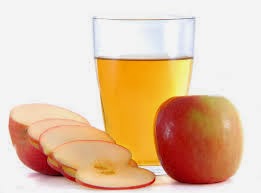In a 2012 UCLA study published in the Journal of Physiology, researchers found that a diet high in fructose over time can damage your memory and learning ability.
It's well known in the research world that a high fructose diet can also cause insulin resistance in your body over time, and possibly lead to type-2 diabetes and extra body fat. If that's not enough, a high fructose diet also detrimentally affects your triglyceride levels in your blood as well as small dense LDL particles that cause plaque in your arteries.

So what we have here is high-fructose intake = impaired memory and learning in your brain, increased risk of diabetes, and increased risk of heart disease.
The average person eating a modern western diet of processed food consumes a LARGE quantity of fructose without even thinking about it from all of the soft drinks (high fructose corn syrup typically), sweetened juice drinks, orange juice, processed junk foods such as cakes and candies, as well as the HFCS that's added to store-bought salad dressings, breads and cereals, and even condiments like ketchup.
Note that many sports drinks, even though marketed as "healthy", can have large amounts of corn syrup or even crystalline fructose as their main sweetener. These sports drinks can be equally as bad as a soda for your body and your brain. beware clever marketing showing pictures these stuff.
Also note that agave syrup (aka, agave nectar) which is marketed as a "healthy" sweetener as well, is one of the most concentrated forms of processed fructose in sweeteners as well.
All of these fructose-laden foods and drinks are easy to avoid though if you choose to eat consciously... for example, make homemade salad dressings from your favorite olive oil and vinegar with added spices, or choose to drink unsweetened iced tea with lemon instead of sweetened drinks or juices. If you use a lot of ketchup, try to reduce the quantity by mixing with mustard or hot sauce, which typically don't contain HFCS sweetener in any significant quantities.
Last thing to note about fructose... Yes, natural whole fruits do contain fructose, but generally contain MUCH smaller quantities of fructose than you would consume in a sweetened juice drink, soft drink or sweetened junk foods. Also, the phytonutrients, antioxidants, and fiber that's contained in most whole fruits counteracts any negative effects of fructose. I personally try to keep fruit intake to no more than 1-2 pieces a day due to the sugar and fructose content of larger amounts of fruit.
Trick: Did you know that limes and lemons contain virtually zero fructose, and only 3-4 grams of total carbs in a whole lemon or lime, whereas a typical orange contains 6 grams of fructose and 25 grams of total sugar per fruit. I squeeze lemons and limes daily into either water or teas for a healthy flavorful drink. Fresh lemon juice has even been shown to control blood sugar response from a meal...another bonus!
There are plenty of superfoods, herbs, and spices that can protect your brain and your other organs too.
Did you know that
turmeric is one of the highest antioxidant spices that also exhibits brain-protecting effects? In India, where curry containing turmeric and other spices is eaten daily, rates of Alzheimers disease is among the lowest in the world, proving some of the brain-protecting effects of turmeric.
In addition, the powerful DHA and EPA omega-3 fats in fish oil has been proven in countless studies to protect your brain from damage over the years.








